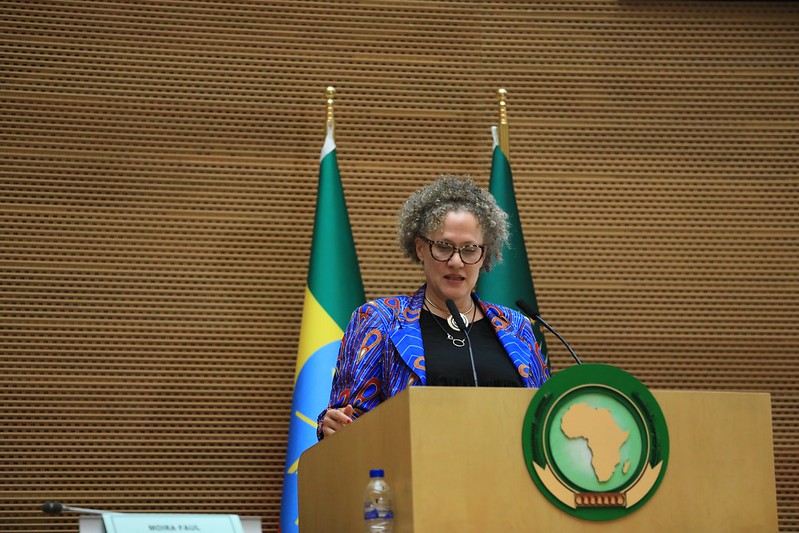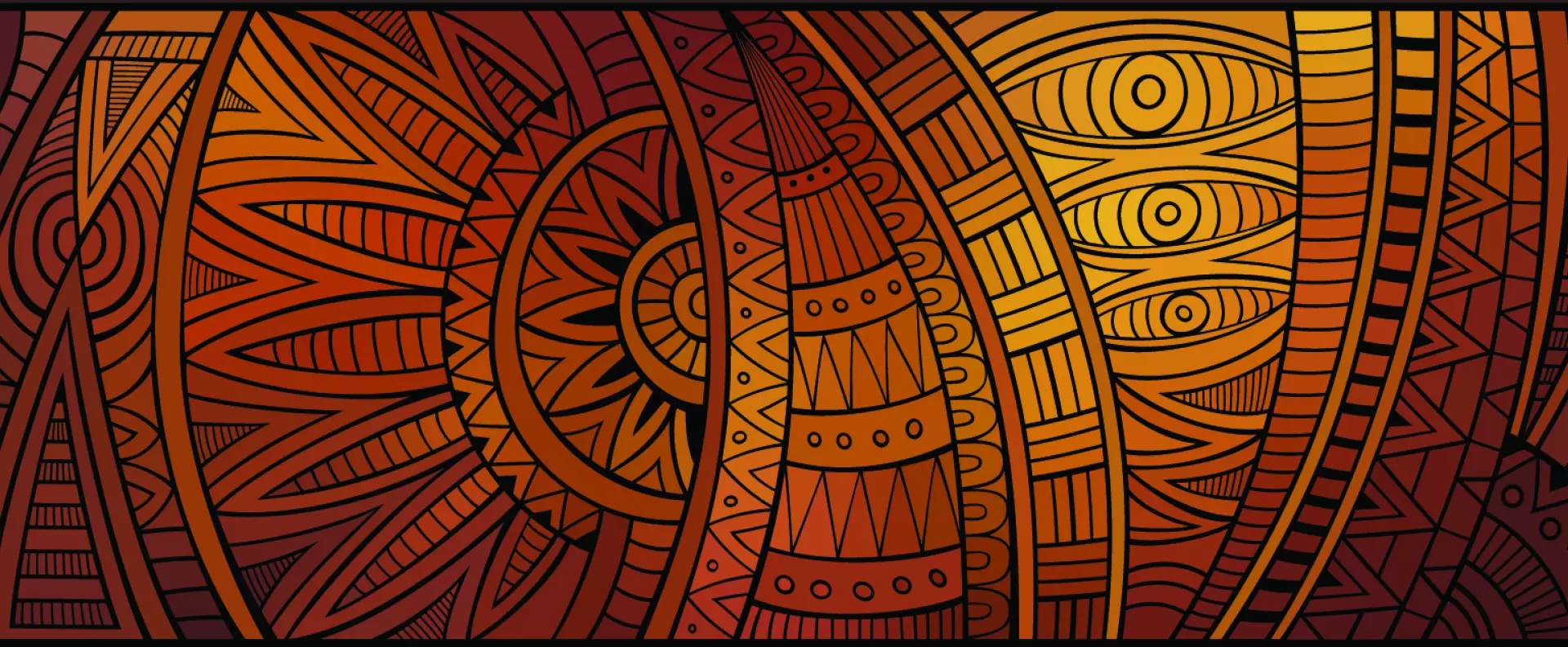UNESCO Chairs and Partners Forum - Transforming Research for Just and Sustainable African Futures: Towards New Ecologies of Knowledge
UNESCO Chairs and Partners Forum
Transforming Knowledge for Africa’s Future
30 September – 2 October 2024, Addis Ababa
Transforming Research for Just and Sustainable African Futures: Towards New Ecologies of Knowledge
Education Futures Network for Epistemic Justice and the Knowledge Commons (EpiNet) – New Research Connections and Partnerships
Transforming Research for Just and Sustainable African Futures: Towards New Ecologies of Knowledge
Keynote Address by Moira Faul, Executive Director of NORRAG:
I was asked to give a brief introduction to this session on the evolving right to education, entitled “Decolonising Knowledge to Strengthen the Right to Education” and I’m very honoured to be here with all of you today, and particularly to be standing in the Nelson Mandela Hall, which as a Zimbabwean, holds a very special place in my heart. And also to be in Addis Ababa where, just nine years ago, we had the Addis Ababa Agreement for Financing for Development, which goes a great deal of the way to answering some of the questions that have come up in several panels today around financing, along with the Transforming Education Summit Track on financing.
Territorial colonization has been greatly reduced, but coloniality persists. Here we define coloniality as the ongoing effects of colonization. Decolonising development is not about a moment of territorial decolonization, where there were certain systems of territorial dominance that were here and then were gone. Nor is it about harking back to the past, blaming the past for our current ills. Rather, decolonising development entails addressing all the ways in which coloniality continues to shape all aspects of the social order in which we think and act, in previously colonised territories and in coloniser territories too.
Critiquing coloniality is very important; more important I would argue is moving beyond that critique in order to provide potential constructive ways forward. That means we can—and should—trace those continuities with historical colonialism, and also think and imagine ourselves towards the development that we want. Not the development which is imposed upon us. The development that we have been talking about today certainly has been development towards a more just a sustainable world and just a sustainable futures and for all.
In terms of the academic literature as far as decolonization of development and education is concerned, development aid has been shown to be used to maintain power asymmetries. It has been used as a tool of dominance and manufactured consent, and also to cover up the plundering of resources—both historical and contemporary. Those of us who are from Africa, who live in Africa, are very aware of this continuity in our history and our present; and that we would like to move beyond it in our futures. Even those who are unaware of how coloniality affects their minds and lives (many in the Global North) still need to move beyond it.. At the same time education has been used to give authority to and legitimate colonialism. One of the ways education does this is through its claim to say development is one path, and you—in Africa—are behind, so what you need to do is move forward and get to where you are something like us. That is this one linear narrative of what development is, that we can see really deep in our education systems. Education has also been used to secure the consent of the subjugated, because it tells us this is in our best interest.
When we’re talking about coloniality, and this colonisation of the mind, these are relations of dominance that seeks to tell us how we should express our very humanity: how to think; how to act; how to relate to each other; how to think about what is good and desirable, and what is not. That affects how we actually narrate the stories of our past as the commissioner mentioned earlier; how we manage the complexity of our present; and how it is that we could even begin to conceive of—and potentially reimagine and remake the complexities of our futures. The need for decolonising the mind affects everyone, everywhere; in the Global South and North.
This tight link between development and education is why it’s really important to think about decolonizing development at the same time as thinking about decolonizing education.
Knowledge and knowledge systems from the Global North continue to be privileged over other forms of knowledge at great cost to those other knowledge systems. Many people say that talking about Indigenous knowledges means going back not forward. However, while the Global North is rediscovering systems thinking through computational advances, many Indigenous intellectual systems hold systems approaches at their core. There’s some research that shows that there is a direct link between SDGs 8 and 9: economy and innovation, industry, infrastructure respectively. But when you take into account the full complexity of all the relations between all of the SDGs in sub-Saharan Africa, that relationship can be accounted for by the relationship with each of these to SDG 4 (education). That is, the effect of education on the economy and education on innovation creates an indirect link between the economy and innovation, rather than a direct link. So when we actually get into that complexity and systems thinking—which is absolutely inherent in Indigenous knowledge systems—these approaches throw up new knowledge, and you understand things that make a difference for how we understand our world. They also make an enormous difference in how we might think about policy.
We have this initiative called #TheSouthAlsoKnows to contribute to addressing one of the biggest problems that we have in the south-north power relations: reminding those in the global north that the south does also know. Those of you who identify as global south, please join the network. If you do not, please use the publicly searchable database to find these experts from the global south. And everyone should tell their friends and networks about it.
We also have this book Transforming Development in Education: From Coloniality to Rethinking, Reframing and Reimagining Possibilities coming out in February 2025, including a chapter from Professor Catherine Odora Hoppers who was on the stage this morning, which is really looking at some of these ways that we can actually think about what and how we might want to repair, reinvent and restore from the ashes of colonialism. How we can actually rethink, reimagine and reframe our futures as we wish them to be. Thank you very much.

Education Futures Network for Epistemic Justice and the Knowledge Commons (EpiNet) – New Research Connections and Partnerships
Tuesday 1st October 2024
Speakers:
- Moira V. Faul, Senior Lecturer Geneva Graduate Institute and Executive Director NORRAG, Switzerland.
- Dr Divine Fuh, Director of the Institute for Humanities Africa, University of Cape Town, South Africa.
- Dr. Catherine Odora Hoppers, Professor, Gulu University, Uganda and former Technical Adviser on Indigenous Knowledge Systems to the Parliamentary Committee on Arts, Culture, Science and Technology, South Africa – Keynote
- Prof. George Openjuru, Coordinator of the UNESCO Chair on Lifelong Learning, Vice-Chancellor of Gulu University – Closing remarks
- Crain Soudien, (retired) Chief Executive Officer of the Human Sciences Research Council, South Africa, Deputy Vice-Chancellor at the University of Cape Town, South Africa.
- Dr Rajesh Tandon, UNESCO Co-Chair on Community-based Research & Social Responsibility in Higher Education, Founder-Dean, PRIA International Academy, India
- Professor Leon Tikly, UNESCO Chair on Transforming Knowledge and Research for Just and Sustainable Futures, University of Bristol, UK – Chair
As Mbembe (2023) has argued, addressing the challenges of the 21st Century, including climate change, inequality, the threats posed by global pandemics such as COVID-19 and the opportunities and risks associated with the rise of new technologies, requires the development of a new planetary consciousness that recognises the interconnectedness of all living things. Such a consciousness would require breaking with Western-centric models of knowledge and research and instead expanding the knowledge commons to include ‘all of the archives of the world’, including Indigenous Knowledge systems that have been neglected and marginalised through colonialism.
The African Union’s Agenda 2063 and Continental Education Strategy for Africa make a strong case for African-led research to address the challenges of unsustainable development on the continent. The report of the Sahle-Work Commission entitled Reimagining our Futures Together: Towards a New Social Contract for Education makes a powerful case for inter- and transdisciplinary research that can integrate diverse knowledge systems to produce new ecologies of knowledge urgently required to realise more just and sustainable futures. Important here is the need to shift from dominant ‘extractivist’ modes of research (Shiva, 2005) and embrace knowledge co-creation between researchers, communities, policymakers and practitioners to generate research relevant to the needs of African communities (Tikly, 2024).
Yet, creating new ecologies of knowledge raises methodological challenges involved in integrating diverse knowledge systems. These include overcoming power imbalances between academic and non-academic participants in the research process and integrating diverse knowledge cultures (Lapore et al., 2023). It also involves engaging with and seeking to transform the wider research ecosystem that is characterised by power imbalances between Northern and African partners reinforced by legal and regulatory frameworks, the predominance of Northern theories and methodologies as well as inequalities in access to research funding and publishing opportunities (Aboderin et al., 2023; Odora Hoppers, 2022).
This panel aims to better understand how the existing research ecosystem can be transformed to generate new ecologies of knowledge relevant to achieving just and sustainable African futures. In realising this aim, the panel will bring together leading scholars from Africa and the diaspora to address the following questions: ‘What is the colonial legacy in research on the African continent? How can new ecologies of knowledge be co-created between academic and non-academic partners? How can the wider research ecosystem be transformed to support African-led research?
References
Aboderin, I., Fuh, D., Balcha Gebremariam, E., & Segalo, P. (2023). Beyond ‘equitable partnerships’: the imperative of transformative research collaborations with Africa. Global Social Challenges Journal, 2(2), 212-228. Retrieved Jul 15, 2024, from https://doi.org/10.1332/27523349Y2023D000000002
Lepore W, L. Hall B and Tandon R (2023) Bridging Knowledge Cultures: Rebalancing Power in the Co-Construction of Knowledge. Brill.
Mbembe, A. 2023. Pathways of Tomorrow: Contribution to Thinking Commensurate With the Planet. Paris, UNESCO
Odora Hoppers C (2022) Towards Ethical Repair and Co-existence Among Knowledge Systems. Available at: https://en.unesco.org/futuresofeducation/ideas-lab/odora-hoppers-knowledge-systems (Retrieved July 15, 2024).
Shiva, V. 2005. Earth Democracy: Justice, Sustainability and Peace. Cambridge MA, South End Press
Tikly, L. (2024). Transforming Knowledge and Research for Just and Sustainable Futures: Towards a new social imaginary for higher education, Education Research and Foresight Working Paper 33. Paris, UNESCO.
Partners:


